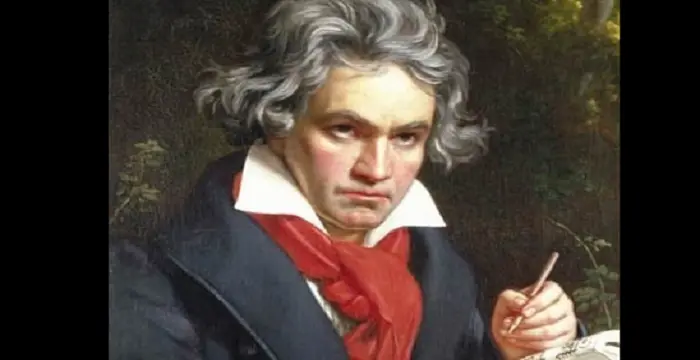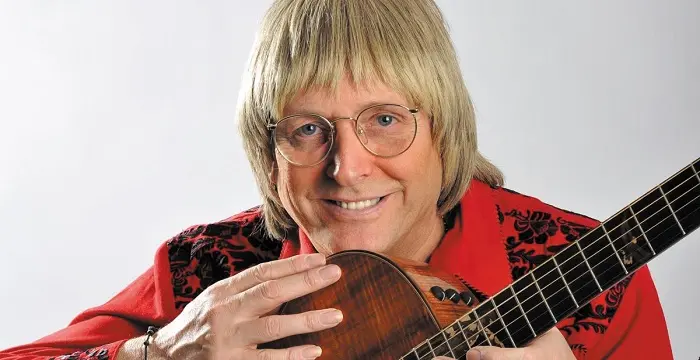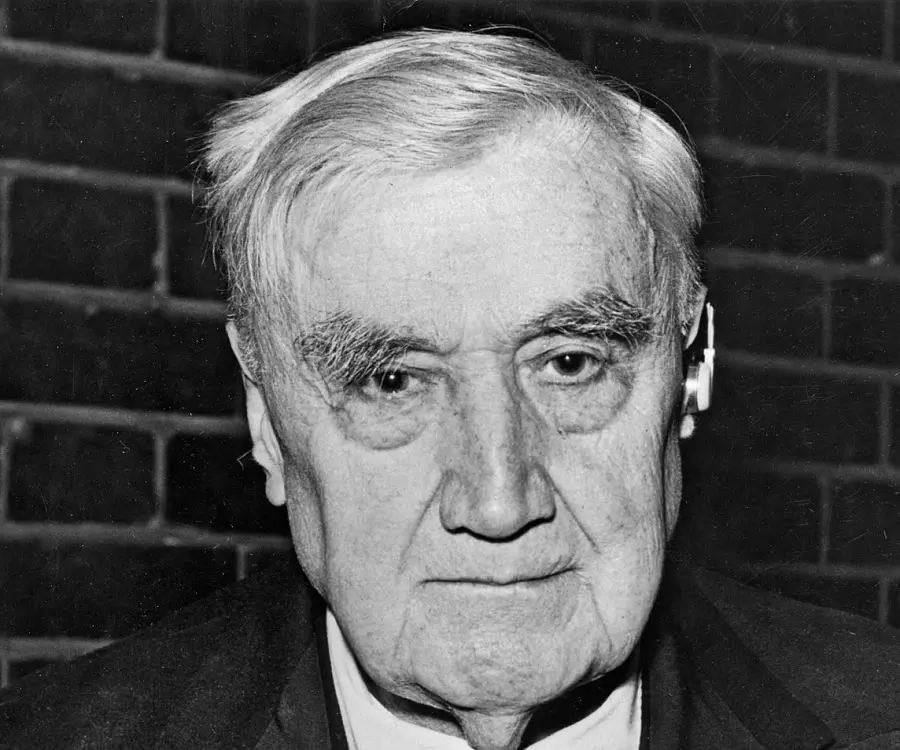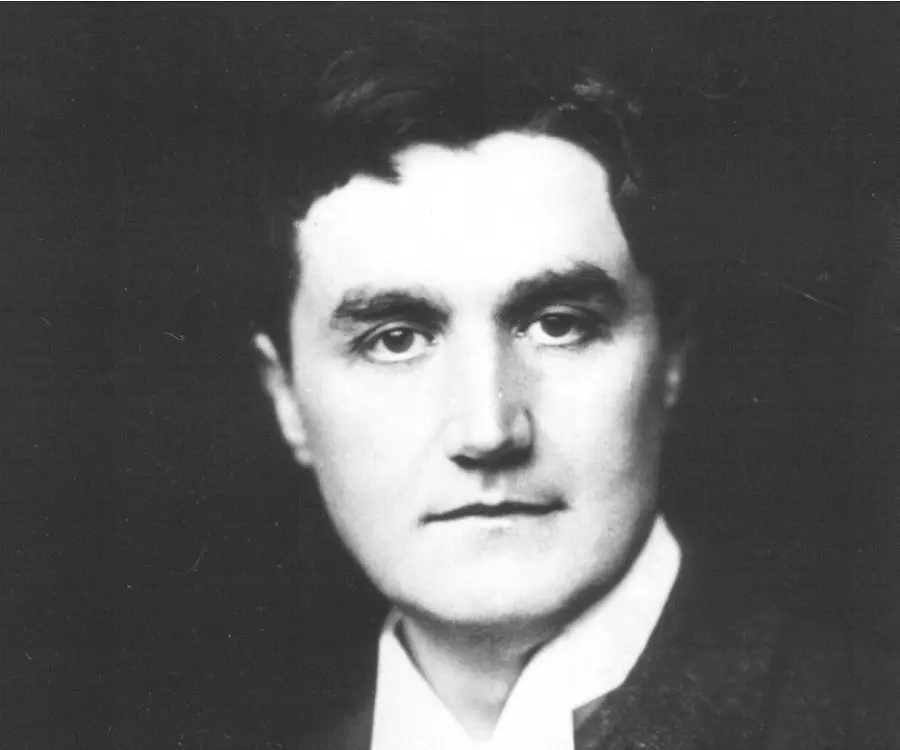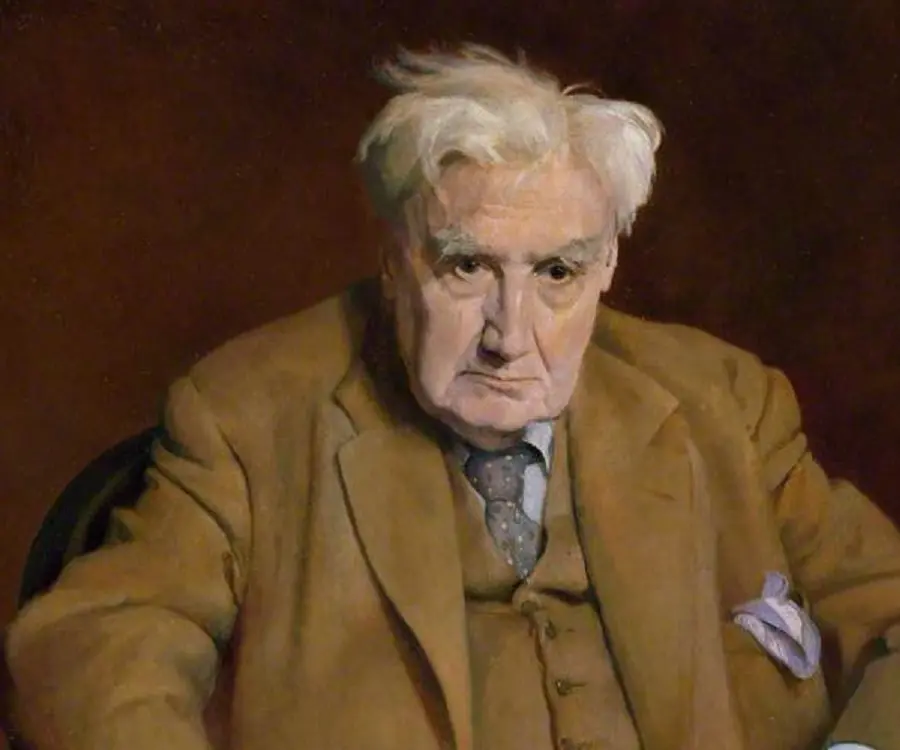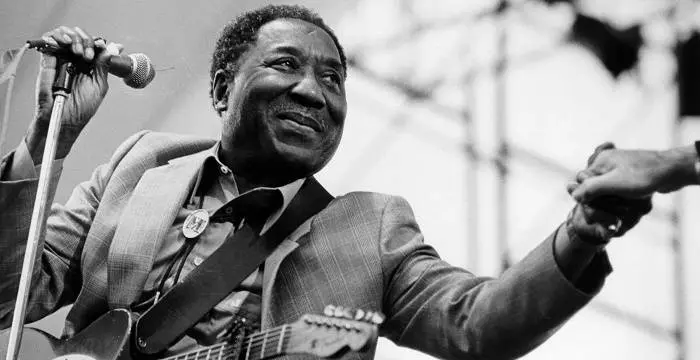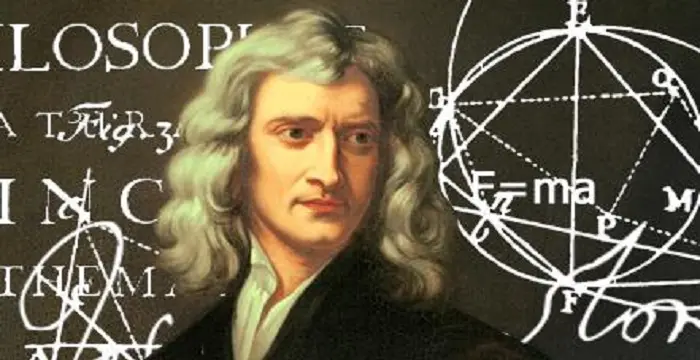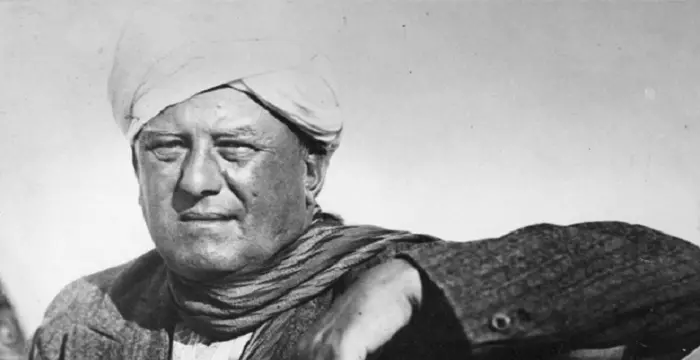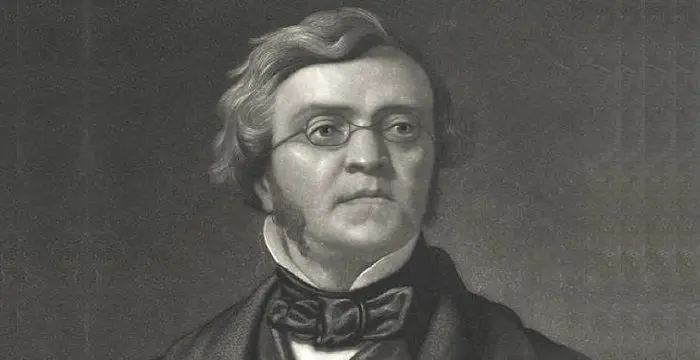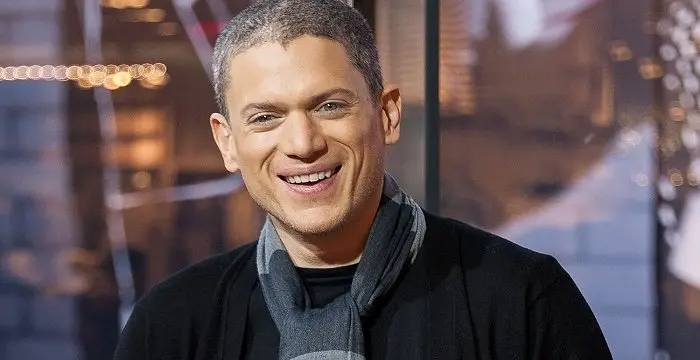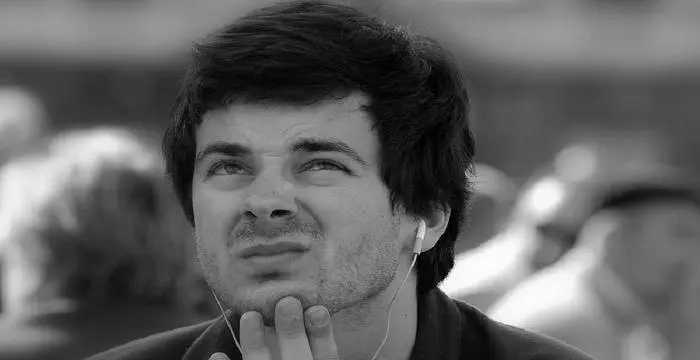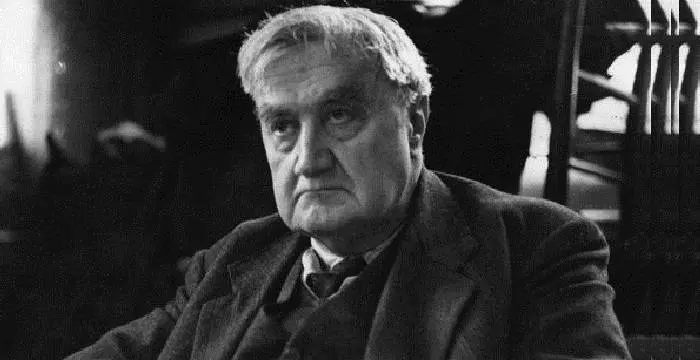
Ralph Vaughan Williams - Musicians, Timeline and Childhood
Ralph Vaughan Williams's Personal Details
Ralph Vaughan was an influential English composer and collector of folk music
| Information | Detail |
|---|---|
| Birthday | October 12, 1872 |
| Died on | August 26, 1958 |
| Nationality | British |
| Famous | Trinity College, Cambridge, Musicians, Composers |
| Spouses | Adeline Fisher Vaughan Williams (m. 1897–1951), Ursula Vaughan Williams (m. 1953–1958) |
| Universities |
|
| Notable Alumnis |
|
| Birth Place | Down Ampney |
| Gender | Male |
| Father | Reverend Arthur Vaughan Williams |
| Mother | Margaret Susan |
| Sun Sign | Libra |
| Born in | Down Ampney |
| Famous as | Composer |
| Died at Age | 85 |
// Famous Composers
Ludwig van Beethoven
Ludwig Van Beethoven was one of the greatest composers the world has ever had. Check out this biography to know about his childhood, family life, and achievements.
Emina Jahović
Emina Jahović Sandal is a Serbian model, actress and singer-songwriter. Know more about her childhood, life, career, achievements and timeline in this biography.
John Denver
John Denver, a famous American singer-songwriter and activist, is remembered for songs like Take Me Home, Country Roads and Annie's Song. To know more about his childhood, career, profile and timeline read on
Ralph Vaughan Williams's photo
Who is Ralph Vaughan Williams?
Ralph Vaughan Williams was an English composer who had composed many symphonies, chamber music, opera, choral music and film scores. He was greatly influenced by the fascinating world of folk music and carols, which are quite evident in the “English Hymnal”, a work in which he was involved as a musical editor. Encouraged by this experience, Vaughan Williams incorporated this style into many of his compositions. He was not just a composer; he was a teacher, lecturer and was the earliest composers to collect folk music. Throughout his life, he mentored many young composers and conductors and had a proud array of students that included famous composers like Ina Boyle. His works were thought-provoking and high in quality. He encouraged everyone to make their own music and believed that it is far better to compose one’s own music however simple it is, rather than performing on another person’s music. He always had a deep regard for all the traditional and classical works and believed that they can transport the listener to a completely different world. Read on to learn more on the life and career of this famous composer.
// Famous Musicians
Ted Nugent
Ted Nugent is a hard rock musician known for his hits ‘Stranglehold’ and ‘Cat Scratch Fever’. This biography of Ted Nugent provides detailed information about his childhood, life, achievements, works & timeline.
Muddy Waters
Muddy Waters was a blues musician referred to as the 'father of modern Chicago blues.' Check out this biography to know about his childhood, family life, achievements and fun facts about him.
Travis Bacon
Travis Bacon is an American musician and actor, better known as the son of veteran actors Kevin Bacon and Kyra Sedgwick. Find more about his family, birthday, etc.
Biography detail
Ralph Vaughan’s Childhood and Early Life
Ralph Vaughan Williams was born in Down, Gloucestershire, England, on 12October 1872 to Reverend Arthur Vaughan Williams, a priest and Margaret Susan nee Wedgewood, who was the great granddaughter of the famous English potter, Josiah Wedgewood, founder of the Wedgewood Company. The famous naturalist Charles Darwin was his great-uncle. His father died in 1975, when he was just three years old and his mother then took him to her family home at Leith Hill Palace. He was sent for piano classes but never liked it. His ultimate salvation lied in violin, his passion.
After completing his schooling from Charterhouse School, Vaughan Williams joined Trinity College at Cambridge opting for history and music as optional subjects. Famous philosophers G. E Moore and Bertrand Russell were his contemporaries and friends at Trinity College. After that he attended the Royal College of Music (RCM), where he received training under the famous English composer Charles Villiers Stanford. There he also studied under Hubert Parry, who became a great friend. Leopold Stokowski, the famous British-born conductor, was his fellow student taking organ classes together under Walter Parrett. Gustav Holst was another friend of Vaughan Williams with whom he was actively engaged in constructive criticism of each other’s works, which helped them to progress in their areas of expertise. It was the company of such friends and teachers that helped Vaughan Williams to develop good composing skills.
Career
‘Linden Lea’ was Vaughan William’s first published work. He was engaged in other tasks as well like conducting, lecturing and editing music. He had learned composing from the famous German composer and conductor, Max Bruch and the French composer, Maurice Ravel. Vaughan Williams had an inquisitive mind and throughout his life he had an insatiable desire to learn more about music. In 1904, he found that many of the English folk songs and carols, which had survived for generations due to the oral tradition, were on the verge of extinction as literacy and printed music started to grow in the countryside. He then travelled through many villages and hamlets to collect such traditional music and later, incorporated these elements in his compositions. His efforts to preserve the traditional music and English folk songs made him the ideal candidate for the President of the English Folk Dance and Song Society. The Society’s library was later renamed, Vaughan Williams Memorial Library, in recognition for his early efforts. He also met the famous folk song writer Reverend George B. Chambers during this time.
Vaughan Williams conducted his first concert in 1905, at the Leith Hill Music Festival, which he conducted continuously till 1953 and then passed the responsibility to his successor William Cole. In the year 1909, Vaughan Williams was proposed to compose incidental music for the Cambridge Greek Play, performed by the students and alumni of Cambridge University. The next year, in 1910, he conducted the premiers of “Fantasia on a Theme by Thomas Tallis” in string orchestra and also a choral symphony called “A Sea Symphony”, which became famous as his “Symphony No.1”. This was followed by “A London Symphony”, his “Symphony No.2”, which also enjoyed enormous success. This symphony was conducted by renowned English conductor Geoffrey Toye.
During World Wars
In 1914, when the World War I began, Vaughan was 41 years old. He could have avoided military service but chose to serve in the Royal Army Medical Corps as a stretcher bearer and after spending a taxing period, in 1917, he was commissioned as a Second Lieutenant in the Royal Garrison Artillery. He served the army bravely, taking many risks. In one occasion, he directed his battery lying on the ground as he was too ill to stand. During his military service he was exposed to prolonged firing and explosions and this affected his hearing, which declined gradually and eventually caused permanent deafness in his old age. In 1918, he was offered the post of director of Music in the Army, which helped him to return back to his primary passion—music.
After the war ended, Ralph Vaughan composed “Pastoral Symphony” (Symphony No.3) in which he used a mystical style. 1924 marked a new phase in his music career as he started adopting lively cross rhythms and clashing harmonies in his compositions. His works like “Toccata Marziale”, “Old King Cole”, “Piano Concerto”, “Sancta Civitas”, “Job: A masque for Dancing” belong to this period.
Ralph Vaughan composed his “Symphony No.4 in F minor”, which was composed in a style totally different from his earlier works. This symphony was first played by BBC Symphony Orchestra in 1935. In 1937, he recorded this work with the same orchestra, for ‘His Master’s Voice’ (HMV), which marked his only commercial recording. During this period, he also started giving lectures in America and England. He also gave private music tuitions in London and the famous Irish composer Ina Boyle was one of his pupils.
Later Years
Vaughan Williams always adopted new techniques and styles in his compositions. He was actively engaged in composing even in his later years. His seventh, eighth and ninth symphonies were composed just a few years before his death. His seventh symphony “Sinfonia Antartica” was composed based on his music score for the film “Scott of the Antarctic”. His “Symphony No.8” was first premiered in 1956 and his “Symphony No.9” was his last symphony, which premiered in 1958.
Vaughan Williams was commissioned to wire an arrangement of “The Old One Hundredth Psalm Tune” for the Coronation Service of Queen Elizabeth II and he considered this to be one of the proudest moments in his life. His ninth symphony was to be recorded for Everest Records and Vaughan Williams was to supervise this recording but before this could happen he closed his eyes forever.
Personal Life
In 1896, Vaughan married Adeline Fisher, daughter of famous the historian Herbert William Fisher. She suffered from arthritis and died in 1951. Vaughan maintained a secret affair with the poet Ursula Wood, who was already married to another person. Her husband died in 1942 and she volunteered to become the caretaker for Adeline, Vaughan’s first wife. After the death of Adeline, Vaughan Williams and Woods married in 1953. The couple then moved to Hanover Terrace. The famous British Pianist Harriet Cohen was his lifelong friend. Both were very close to each other and Vaughan Williams often visited her house and also attended parties there. His work “Hymn Tune Prelude” was dedicated to Cohen, which she premiered in 1930. She also played the piece in many of her concerts. In 1933, Cohen premiered his “Piano Concerto in C major” and this work was also dedicated to her. Cohen played Vaughan William’s compositions in her concerts tours throughout Europe, USSR and US. Ursula Woods wrote Vaughan’s biography, which was published in 1964. She remained the honorary president of the Ralph Vaughan Williams Society till her death in 2007. He died on 26 August 1958 at the age of 80 and was buried in Westminster Abbey.
Legacy
Vaughan Williams leaves behind a strong legacy and much of his works where recorded by many musicians, after his death. Early recordings of his symphonies were done by Henry Wood, John Barbirolli, Adrian Boult and Leopold Stokowski. “A London Symphony” was recorded by Sir Eugene Goossens. Dimitri Mitropoulos and Leonard Bernstein recorded the “Fourth Symphony”. Paavo Berglund recorded both the “Fourth Symphony” and the “Sixth Symphony”. Recently, Somm Recordings released the first official recording of his “Fifth Symphony”, conducted by Vaughan Williams in 1952. EMI Classica had released a CD set of 30 CDs, which has all of this great composer’s works with alternative stings.
Awards and Recognitions
He was honored with the prestigious Knighthood but declined to accept it. In 1935, in the Queen’s Birthday Honors, he was recognized with the Order of Merit, a dynastic order meant to recognize distinguished service. He was elected President of the “City of Bath Bach Choir” in 1946 and continued in this position till 1959. Vaughan Williams was elected President of the English Folk Dance and Song Society in recognition of his efforts to preserve folk music the Society’s library was renamed “Vaughan Williams Memorial Library”.
Major Works
Operas
- Hugh the Drover or Love in the Stocks, 1920
- Sir John in Love, 1928
- The Poisoned Kiss, 1929
- Riders to the Sea, 1932
- The Pilgrim's Progress, 1951
- The Shepherds of the Delectable Mountains, 1921
Incidental music
- The Wasps, 1909
- The Bacchae, 1911
- The Death of Tintagiles, 1913
Ballets
- Old King Cole, 1923
- On Christmas Night, 1926
- Job: A Masque for Dancing, 1930
- The Running Set, 1933
- The Bridal Day 1939
Symphonies
- A Sea Symphony (Symphony No. 1), 1909
- A London Symphony (Symphony No. 2), 1913
- A Pastoral Symphony (Symphony No. 3), 1921
- Symphony No. 4 in F minor, 1934
- Symphony No. 5 in D major, 1943
- Symphony No. 6 in E minor, 1947
- Sinfonia Antartica (Symphony No. 7), 1952
- Symphony No. 8 in D minor, 1955
- Symphony No. 9 in E minor, 1957
// Famous Trinity College, Cambridge
Isaac Newton
Isaac Newton was an English scientist and mathematician, who discovered gravitation and Newtonian Mechanics. Read this biography to find more on his life.
Aleister Crowley
Aleister Crowley was an occultist and ceremonial magician who founded the ethical philosophy of Thelema. This biography of Aleister Crowley provides detailed information about his childhood, life, achievements, works & timeline.
William Makepeace Thackeray
William Thackeray was an English novelist and satirist. Read this brief biography to find more on his life & timeline.
// Famous British peoples
Wentworth Miller
Wentworth Miller is an American actor and screenwriter who achieved recognition for his role in the TV series ‘Prison Break’.
Sophie Reade
Sophie Victoria Reade is a British model and reality show star. Let’s take a look at her family and personal life, including her age, birthday, boyfriends, and some interesting facts.
Josh Temple
Check out all that you wanted to know about Josh Temple (Slogoman), the famous British YouTube Personality; his birthday, his family and personal life, his girlfriends, fun trivia facts and more.
Yammy Xox
Check out all that you wanted to know about Yammy Xox, the famous British YouTube Personality; her birthday, her family and personal life, her boyfriends, fun trivia facts and more.
Grian
Grian is an English YouTube gamer and social media influencer. Check out this biography to know about his birthday, childhood, family life, achievements and fun facts about him.
Benjamin Atkinson
Benjamin Atkinson is the son of the world-renowned British actor and comedian, Rowan Atkinson. Check out this biography to know about his childhood, family, personal life, including his age, birthday, etc.
Ralph Vaughan Williams's FAQ
What is Ralph Vaughan Williams birthday?
Ralph Vaughan Williams was born at 1872-10-12
When was Ralph Vaughan Williams died?
Ralph Vaughan Williams was died at 1958-08-26
Where was Ralph Vaughan Williams died?
Ralph Vaughan Williams was died in London
Which age was Ralph Vaughan Williams died?
Ralph Vaughan Williams was died at age 85
Where is Ralph Vaughan Williams's birth place?
Ralph Vaughan Williams was born in Down Ampney
What is Ralph Vaughan Williams nationalities?
Ralph Vaughan Williams's nationalities is British
Who is Ralph Vaughan Williams spouses?
Ralph Vaughan Williams's spouses is Adeline Fisher Vaughan Williams (m. 1897–1951), Ursula Vaughan Williams (m. 1953–1958)
What was Ralph Vaughan Williams universities?
Ralph Vaughan Williams studied at Trinity College, Cambridge
What was Ralph Vaughan Williams notable alumnis?
Ralph Vaughan Williams's notable alumnis is Trinity College, Cambridge
Who is Ralph Vaughan Williams's father?
Ralph Vaughan Williams's father is Reverend Arthur Vaughan Williams
Who is Ralph Vaughan Williams's mother?
Ralph Vaughan Williams's mother is Margaret Susan
What is Ralph Vaughan Williams's sun sign?
Ralph Vaughan Williams is Libra
How famous is Ralph Vaughan Williams?
Ralph Vaughan Williams is famouse as Composer
